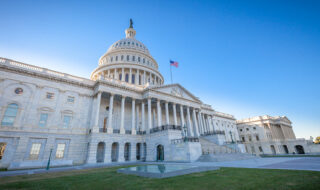Topics:
June 5, 2023 Last Edit: June 5, 2025
There are just a few weeks left in the legislative session. Focus has moved from work in committees to action on the Senate and House floors. Here are some of the issues that lawmakers will be deciding.
NFIB Maine Legislative Update for June
- provide 12 weeks leave annually for family, medical, safety, and military exigency purposes;
- cover all public and private employers and their employees;
- leave could be as short as 8 hours;
- cap overall taxes at 1% of wages up to the Social Security cap ($160,200 in 2023) and split equally between employees and employers;
- provide no blanket exemption for employers with fewer than 15 workers (those employers are currently exempt from Maine’s unpaid family and medical leave law);
- allow those small employers to remit only the employee share the tax on wages and salaries; and
- allow self-employed people to opt in and pay only the employee tax share.
- She expressed a desire to see an exemption for small businesses with fewer than 15 workers. The committee vote rejected that desire.
- She said that an employee should work for an employer for at least 120 days before they can take leave. The committee vote rejected that proposal but does create a curious exemption from restoration to the person’s job if they took leave prior to 120 days.
- She said the wage replacement levels are “too high to make the program sustainable.” The committee vote somewhat accommodated that concern.
- $15 Minimum Wage (LD 1376) – Labor Committee partisan vote in favor of an amended version that resets the indexed wage to $15 in 2024 (currently $13.80 and likely to approach $14.35 next year)
- Show-up Pay (LD 1190) – Labor Committee vote in favor of an amended version that requires two hours of “show up” pay if a worker is sent home at the start of a shift. Employers with fewer than 10 workers would be exempt. Republicans support including public employers; Democrats do not.
- Pay Disclosure (LD 936) – Labor Committee partisan vote in favor of amended version that requires employers of fewer than 10 workers to disclose the salary range of a job upon request but requires all other employers to disclose the range in any job posting.
- Estate Tax exclusion increase (LD 802) – Taxation Committee partisan vote against raising from $6.41 million to the federal level of $12.92 million at a revenue loss of $9 million a year.
- Estate Tax exclusion decrease (LD 1338) – Partisan Taxation Committee vote in support of lowering the exclusion from $6.41 million to $2 million for most estates and $3.8 million for agricultural and forestry estates, as an annual revenue increase of $17 million a year.
- Wrongful Death Caps (LD 934) – Judiciary Committee partisan vote in support of raising the cap on noneconomic damages from $750,000 to $1 million, raising the cap on punitive damages from $250,000 to $1 million, and extending the statute of limitations from 2 years to 3 years.
State:
Get to know NFIB
NFIB is a member-driven organization advocating on behalf of small and independent businesses nationwide.
Related Articles

June 30, 2025
Get Tips on Website ADA Compliance on the Small Business Rundow…
The Small Business Rundown talks website ADA compliance, the Small Business…
Read More


June 30, 2025
Reminder: Important Tax Changes Went into Effect on July 1
Income, sales & use, and the new “tech tax” are impacted
Read More


June 30, 2025
Florida’s Small Business Community Celebrates Tax Package Bec…
Governor DeSantis signed legislation eliminating the business rent tax
Read More


June 28, 2025
NFIB Key Votes the One Big Beautiful Bill Act in U.S. Senate
NFIB sent a letter to the U.S. Senate naming the One Big Beautiful Bill Act…
Read More







